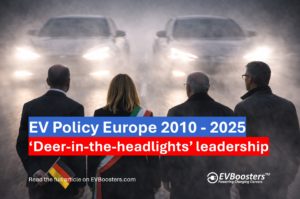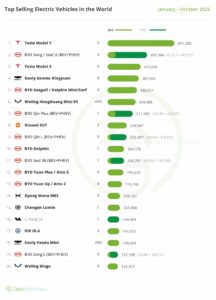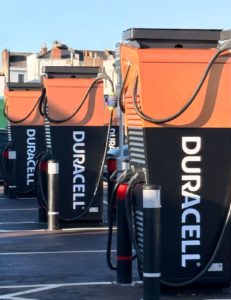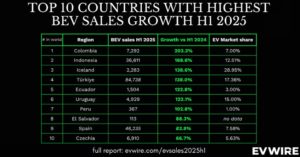A Milestone Year for the UK’s Electric Vehicle Market
The year 2024 will be remembered as a pivotal moment in the UK’s journey towards electrification. For the first time, the UK surpassed Germany to claim the top spot as Europe’s largest market for pure electric vehicles (BEVs) by new registrations. Data from Schmidt Automotive Research revealed that the UK registered 381,970 BEVs last year, narrowly outpacing Germany’s 380,609 units. This remarkable achievement underscores the UK’s growing leadership in the electric vehicle revolution, signalling a strong consumer appetite and robust industry momentum.
One in Five New Cars in the UK is Electric
The UK’s impressive numbers were bolstered by a sharp rise in BEV adoption. According to the Society of Motor Manufacturers and Traders (SMMT), BEVs accounted for 19.6% of the UK’s total new passenger car market in 2024, which saw 1,952,778 cars registered overall. This means nearly one in five new cars sold in the UK last year was fully electric. The rapid growth can be partly attributed to the introduction of the Zero Emission Vehicle (ZEV) mandate, which set ambitious targets for automakers while providing flexibility through mechanisms like credit “banking and borrowing.”
Germany’s Dip: Delayed Models and Subsidy Cuts
While the UK celebrated its milestone, Germany faced challenges that slightly hindered its BEV progress. A combination of factors, including reduced subsidies for corporate drivers in late 2023 and a strategic pause in new BEV model launches, affected Germany’s performance. Many automakers delayed the release of new models to align with stricter EU-wide CO2 regulations set to take effect in 2025. These adjustments, while pragmatic, led to a cyclical dip in Germany’s BEV registrations in 2024, creating an opportunity for the UK to overtake.
The Role of the ZEV Mandate and Flexible Compliance
The ZEV mandate in the UK played a crucial role in this achievement. The regulation requires automakers to ensure that a specified percentage of their new car sales are zero-emission vehicles. For 2024, the target was set at 22%, but manufacturers were allowed to “bank or borrow” credits, offering flexibility and reducing the likelihood of fines. This approach incentivised compliance without penalising automakers for slight underperformance, ensuring the market continued to grow sustainably.
What This Means for the EU Market
The UK’s success in 2024 provides a roadmap for other European countries as they prepare for stricter regulations. Starting in 2025, EU markets, including Norway and Iceland, will face tougher CO2 emission targets, requiring a 15% reduction in fleet averages compared to 2021 levels. Automakers must bring their fleet emissions down to 93.6g/km, a challenging but achievable goal thanks to adjustment mechanisms and mass-based fleet averaging. The UK’s performance demonstrates that with the right policies and consumer incentives, markets can rise to meet ambitious targets.
Germany’s Rebound Expected by 2025
Germany’s slight decline in BEV registrations is likely temporary. Analysts, including those at Schmidt Automotive Research, anticipate a recovery by late 2025. This rebound will be driven by the return of three-year lease drivers to the market and the reintroduction of corporate incentives. Additionally, delayed BEV model launches are expected to flood the market in 2025, as manufacturers aim to meet stricter emissions targets. This cyclical recovery will likely restore Germany’s position as a leading BEV market in Europe.
A Glimpse of the Future
The UK’s achievement in overtaking Germany is more than just a numbers game—it’s a reflection of shifting consumer preferences, effective regulatory frameworks, and the resilience of the automotive industry. It highlights the importance of proactive policies, like the ZEV mandate, in driving the transition to zero-emission vehicles. As Europe collectively moves towards tighter regulations, the UK’s performance serves as both an inspiration and a benchmark.
Conclusion: A Green Horizon
The UK’s emergence as Europe’s largest BEV market is a testament to its commitment to a greener future. While challenges remain, including infrastructure development and affordability, this milestone underscores the nation’s potential to lead the way in electric mobility. With Germany poised for a comeback and other EU markets gearing up for regulatory shifts, the stage is set for a dynamic and competitive landscape in the years ahead. For now, the UK’s achievement shines as a beacon of progress in Europe’s journey towards sustainable transportation.







